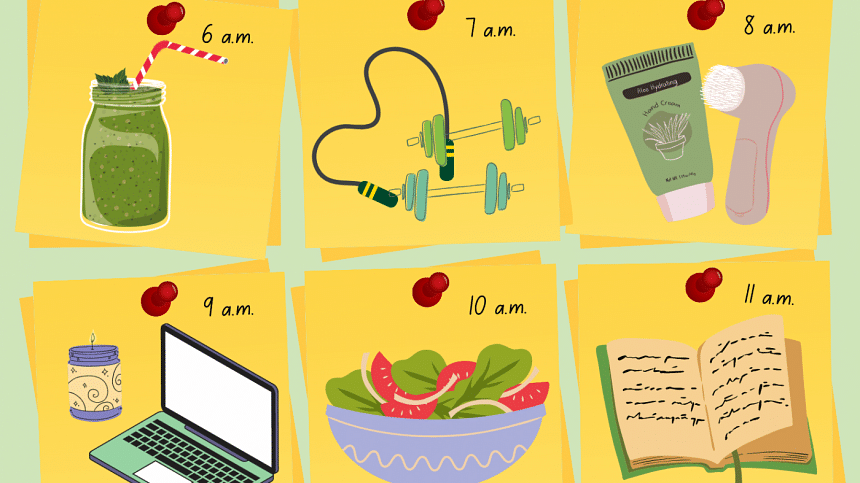Do I need to be "that" girl?

TikTok and Instagram have been bombarding me with tips on how I can become "that" girl for a while now and I am sick of it.
If you are not familiar with the concept, being "that" girl is essentially a watered-down version of the the not-like-other-girls trope. While girls who-are-not-like-other-girls sport a more traditionally "masculine" energy and may even openly despise conventional femininity, the "that" girl trope has a more subtle and traditional aesthetic. She wears makeup (but only the no-makeup look), religiously maintains a lean figure, and has the most austere, surreally perfect daily routine. Put simply, that girl "puts in effort," while making it look effortless.
On the surface, the trend might appear to be a very idealistic and conventionally feminine vision board promoting physical and mental wellbeing for women. However, if examined closely, an overwhelming sense of exclusivity lurks behind the perfect shots of matcha latte and yoga mats that go hand in hand with this aesthetic. It mutely suggests that there is a superior way to live one's womanhood and pushes for a singular way of life to be adopted by all women.
But naturally, one lifestyle does not fit all. I myself have found structure and convenience in not being an early bird, my flexible daily schedule and working on projects on the fly. It is precisely the idea of waking up and making myself a green smoothie, doing an at-home workout, taking a bubble bath and journaling all the nitty gritty details, all before the clock strikes 7, that makes me feel drained.
Although content creators promoting the aesthetic appear to be eternally energised and overly organised "girl bosses," their stifling insistence on a certain way of life certainly does not feel very empowering or inclusive.
Similarly, the aesthetic encourages a very specific model of femininity: light, dewy makeup; tight-fitting, pastel outfits; well-toned bodies, paired with a nonchalant, happy-go-lucky attitude. Nothing too edgy, nothing too "crazy."
Given our society's history of constantly policing what women should look and act like, it does not seem to be a coincidence that the viral trend pointedly supports traits that align with conventional femininity.
At this point, I should make it clear that there is nothing wrong in finding conventional femininity, or "that" girl's lifestyle appealing and wanting to adhere to the standards set by these ideologies. It is just that the choice has to be organic and self-determined – something that can become a little difficult for young girls or women on social media platforms that are saturated by only one section of a spectrum.
Why does there even have to be a motif for women's identity?
To see femininity politicised and advertised as a means of gaining social validation is upsetting and it is high time mainstream media, social media platforms and content creators alike start acknowledging that femininity is a spectrum and that wherever one stands, they are valid.
Fabiha is secretly a Lannister noblewoman and a Slytherin alum. Pledge your allegiance and soul to her at [email protected]

 For all latest news, follow The Daily Star's Google News channel.
For all latest news, follow The Daily Star's Google News channel. 








Comments